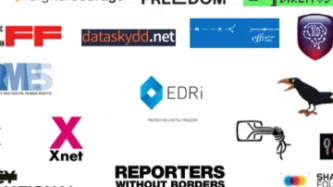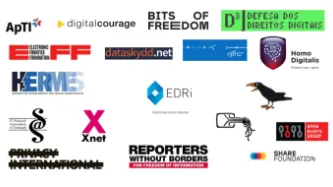Search
Content type: Examples
Numerous efforts to create apps to help monitor and map the spread of COVID-19 rely on satnav-based location data from Galileo. The CovTrack app developed on a pro-bono basis by the Romanian company RISE, for example, uses Bluetooth connections between mobile phones to store identification data the user can access to very if any contacts have subsequently tested positive for COVID-19. CovTrack is a spin-off of the AGORA project for festival management, which is supposed by the European Space…
Content type: Examples
The Romanian government has formally notified the Council of Europe under Article 15, paragraph 3 of the ECHR of the country's state of emergency decree, noting that some of the measures being taken involve derogations from the obligations under the Convention.
Source: https://rm.coe.int/09000016809cee30
Writer: Permanent Representation of Romania
Publication: Official letter
Content type: Examples
On March 14, Romanian president Klaus Iohannis announced a state of emergency to make it possible to allocate new resources for crisis management, and urged the public to follow isolation guidelines and hygiene rules. The Parliament must approve within five days, and the state of emergency lasts 30 days. The decree allows the government to carry out checks on persons and places, order temporary closures of shops and other public places, halt the distribution of publications or broadcasts, and…
Content type: Examples
Four members of the Council of Europe - Romania, Latvia, Moldova, and Armenia - have activated Article 15 of the European Convention on Human Rights, which allows derogations in cases of public emergency. Derogation allows Member States to take measures to the extent required by the situation as long as those do not contravene other obligations such as the articles that prohibit torture and slavery and protect the right to life.
Source: https://www.g4media.ro/romania-moldova-letonia-si-…
Content type: News & Analysis
This piece was first published in GDPR today in March 2019.
Elections, referendums and political campaigns around the world are becoming ever more sophisticated data operations. This raises questions about the political use and abuse of personal data. With the European Union elections fast approaching and numerous national and local elections taking place across EU Member States, it is essential that the legal frameworks intended to protect our personal data do just that.
Member State…
Content type: News & Analysis
At the beginning of November 2018, the first GDPR-related privacy and freedom of expression case arose in Romania in connection to the publication by the RISE Project of several articles about a corruption investigation. The articles reported a close relationship between a road construction company that is currently under investigation for fraud, European funds, and a high-profile politician.
Shortly after the first article was published, the Romanian data protection authority (“ANSPDCP”) sent…
Content type: News & Analysis
We found this here.
The European Union’s new privacy law, the General Data Protection Regulation, or GDPR, is being tested across Europe. The first GDPR privacy case in Romania began with an investigation that was published on November 5 about a corruption scandal involving a politician and his close relationships to a company being investigated for fraud. The Romanian data protection authority (ANSPDCP) sent a series of questions to the journalists who authored the article and asked for…
Content type: Advocacy
Privacy International, European Digital Rights, and the Association for Technology and Internet (ApTI) together with 15 other digital rights organisations sent a letter on Monday 21 November 2018, to the European Data Protection Board (EDPB), with copies to the Romanian Data Protection Authority (ANSPDCP), and the European Commission, asking for the General Data Protection Regulation (GDPR) not to be misused in order to threaten media freedom in Romania.
Shortly after a journalistic…



